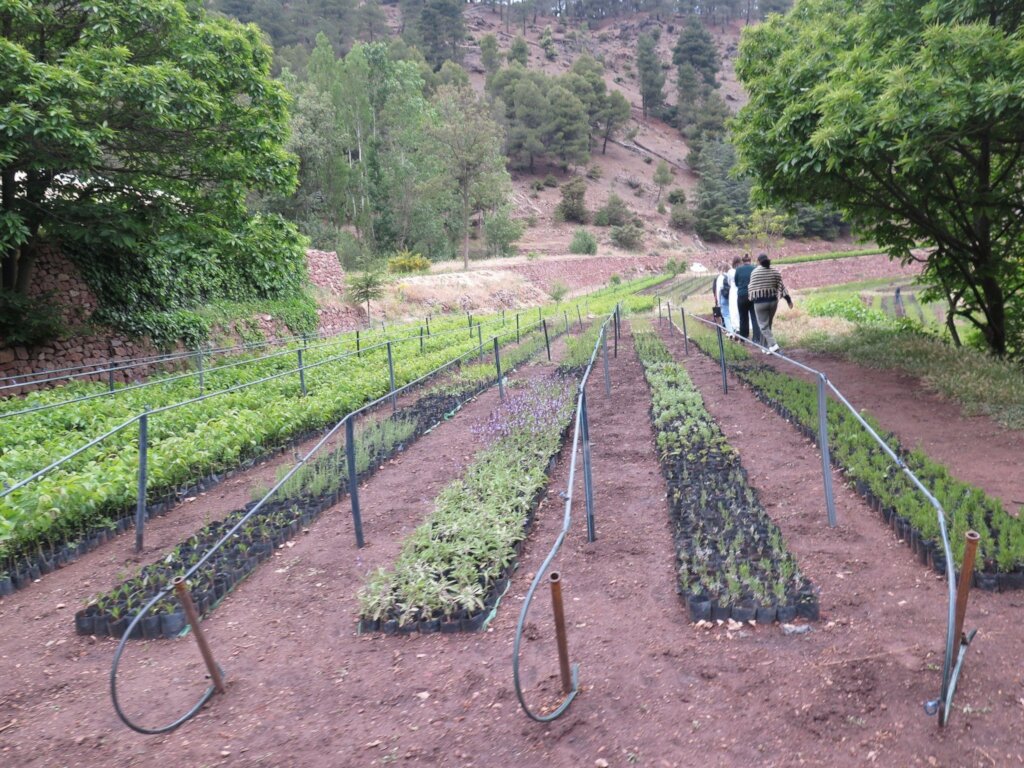By Grace Shawah | HAF-UVA Intern
Upon entering the Abogholou Cooperative, the cohort of UVA interns and myself were greeted by Rachida, the co-operative's current president, and a plethora of certification papers and plaques in the entryway. Abogholou is one of the eighty women’s cooperatives supported by the High Atlas Foundation, and has worked to obtain a food safety certification that has allowed them to reach a wider market for their selection of couscous products.The tight-knit group of women were quick to welcome us and share their excitement about the accomplishments of their cooperative, including their recent participation in the Meknes agricultural conference (SIAM). After receiving a warm greeting filled with tea and sweets, we were able to sit down and chat with the women.
Following an initial introduction to their process, the women posed a question to our group: how do we get into US markets? Although the women have a fully functioning kitchen and a working process for couscous production, they share the frustration of inconsistent work: sometimes they’ll have orders keeping them busy for a few days, but then a dry spell of work can follow for weeks on end. Their goal is to make it into American stores, which will allow their homemade couscous to be enjoyed by people worldwide. When we asked the women what they are most proud of, the answer was unanimous: the relationships they have formed with one another.
The value of relationships was echoed by a cooperative about an hour away in a small village, Anamer, that is home to another group of artisans. Instead of couscous, however, the women specialize in making carpets and other textiles, such as the knitted poncho I was given upon entry to keep me warm. While only one of the eight women leading the co-op is literate, the tide seems to be turning with the next generation. The daughters of the women in the co-op are attending school nearby, and hope to become teachers and police officers. While the women find comfort and companionship in the co-operative, it seems it is not in the futures they envision for their daughters — ones of higher education beyond the village.
Our final stop of the day was Tadmamt, a village high in the mountains where the farmers we met specialize in cherry, almond, and walnut crops. The land, previously controlled by Morocco’s Agency for Forests and Waters, is now managed by local farmers who purchase trees from HAF. Now, many have their own plots and control their own crops, a source of independent income for those in Tadmamt. We were kindly hosted by Abdultif with tea and fresh-picked cherries and nuts, and left with a newfound appreciation for the process of developing tree nurseries on this land.
After spending time with women from the Abogholou and Anamer cooperatives, I gained an appreciation for the importance of relationships in community development in terms of both financial and emotional support. The women demonstrated a strong desire to achieve a collective project, forging closer personal ties and developing a business model that provides them with increased financial stability. Visiting Abdultif in Tadmamt allowed us to discover the value of planting more sustainable, profitable crops in these villages, and how that has built communities and livelihoods in remote areas. It ends up that couscous, carpets and cherries are much more connected than initially believed.
Project reports on GlobalGiving are posted directly to globalgiving.org by Project Leaders as they are completed, generally every 3-4 months. To protect the integrity of these documents, GlobalGiving does not alter them; therefore you may find some language or formatting issues.
If you donate to this project or have donated to this project, you can recieve an email when this project posts a report. You can also subscribe for reports without donating.
Support this important cause by creating a personalized fundraising page.
Start a Fundraiser